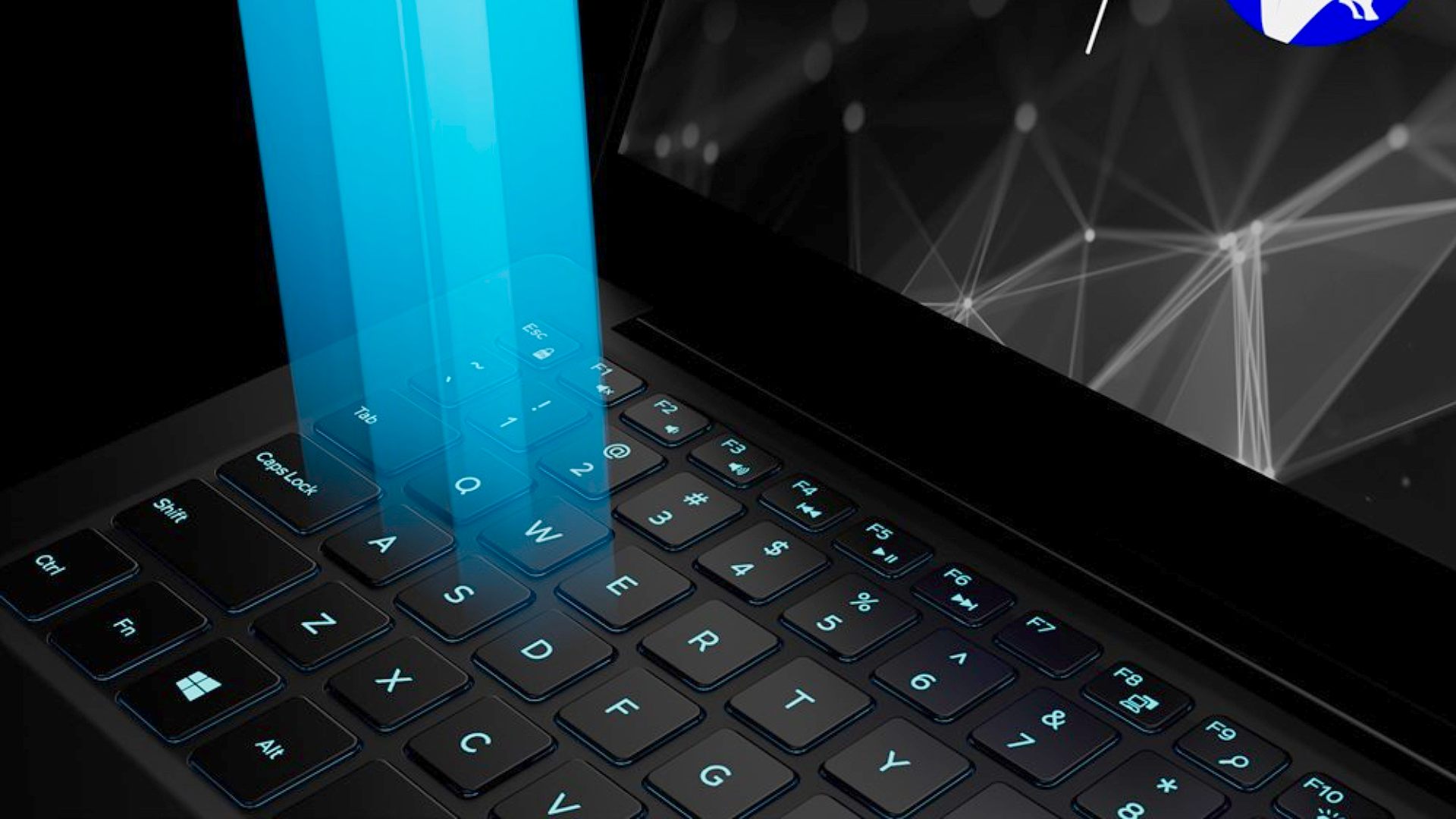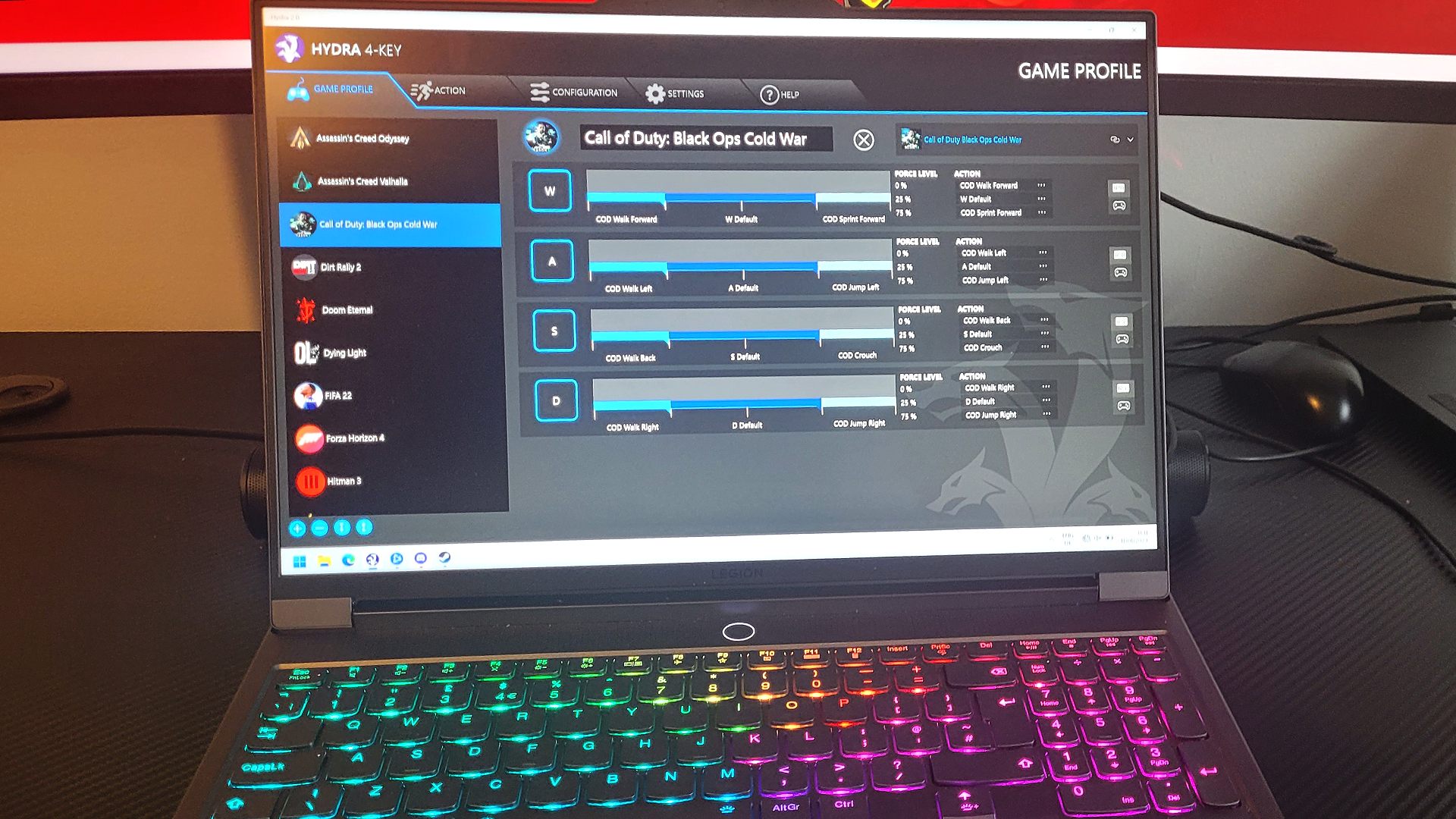Gaming laptop brands need to do something different to stand out from the crowd, especially if they’re looking to break the mold. Some stretch the definition of mobile gaming, with ever-increasing screens that make lugging it around a bit of a nightmare. Others provide incredible performance with the latest RTX cards, but Lenovo has partnered with Peratech to pop analogue keyboards into its Legion 7i portable powerhouses, and I reckon the tech needs to come to the desktop.
It’s worth covering exactly what Lenovo’s best gaming laptop contender boasts in terms of keys. With the Peratech Force Keyboard, W, A, S, and D keys are all embedded with pressure-sensitive tech that lets you double, or even triple, actions you perform depending on how hard you press each one.
For example, if you push forward lightly on W in a compatible game, you’ll slowly walk forwards, whereas if you press harder, you’ll rapidly start sprinting like you’ve arrived at the store five minutes before it shuts to buy milk . You might think this sounds a lot like the Razer Huntsman V2 Analog, Wooting Two HE, or one of the other best gaming keyboard options with analogue functionality, but you’d only be half right.

The Peratech Force Can mimic a controller if you fancy more granular movements, like the right trigger for accelerating in racing games or a thumbstick, but it comes with the same caveats. Games need to register W, A, S, and D as a controller and the rest of the keyboard as, well… a keyboard. This means on-screen UI elements often switch about as your fingers click different keys, and some games outright can’t even handle two simultaneous connections.
In these instances, the Peratech Force Keyboard has another trick up its sleeve: assigning up to three actions to a single key with different actuation points. The lightest of presses between 0-25% can be ‘Walk’, which is a lot like holding Alt+W in Rainbow Six Siege.
Holding the same key between 25%-75% is called ‘W Default’ and unsurprisingly offers the standard motion. And a full-blown press can be ‘W Sprint’, which is pretty much shift+W. It’s less control over movement than you get with true analogue, but fantastic for removing modifiers.

Bound together
This is just one example of a generic keybinding, but it’s entirely customizable depending on what games you play. It’s not exactly mind-blowing, but it’s far from being a mere gimmick, allowing for more player agency. To a certain degree, it feels like the keys are fighting against you, similar to how the Dualsense fights against you with haptic feedback, contributing an element of tactile immersion.
Forza Horizon 4 works basically exactly how you’d imagine it would too, with the pressure put on any given key dictating whether you simply look to the direction that you’re looking in, or whether you make a turn. Want the W key to honk your horn if you push it all the way down? You can do just that, which adds a variety of vehicular actions to a limited number of keystrokes.
Hitman 3 has a rather wonderful range of options for what each degree of force does for you (which can completely destroy your stealth in an utterly hilarious manner if you put too much force on any given key). Keybindings become your playground, and in some instances make the game even easier.

Not only can you customize what each press does, but you can tune it to your liking in the software with different curves. Heavy-handed people might prefer keys that are a bit more resistant, whereas lighter touches benefit from more sensitive keys that reach 100% a bit quicker.
In order to do this you have to use software called Hydra, and the experience is pretty intuitive. It boasts inbuilt profiles for numerous games, but you’ll also be able to craft your own. You’d perhaps expect something this technologically advanced to be difficult to use, but it’s extremely easy to create a profile tailored to your preferences. Although, it is worth noting that you’ll get mixed results based on what you choose to play. For example, the Peratech Force Keyboard is going to be less useful for say, Hades, but it’s going to be incredibly handy for a game such as Cyberpunk 2077 or Hitman 3.
The Lenovo Peratech Force Keyboard is a cool addition to the Lenovo Legion 7i, allowing it to really stand out amidst the competition. While you won’t find yourself using it outside of gaming (force-enabled typing, anyone?), it immerses you in any given game, especially a racing game or something that relies on precise movements like Mirror’s Edge. There’s more that can be done with this technology, sure, but as a start? It’s quite an exciting prospect.